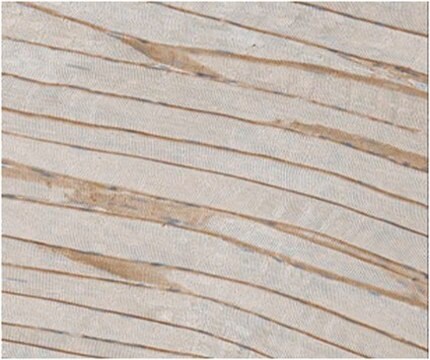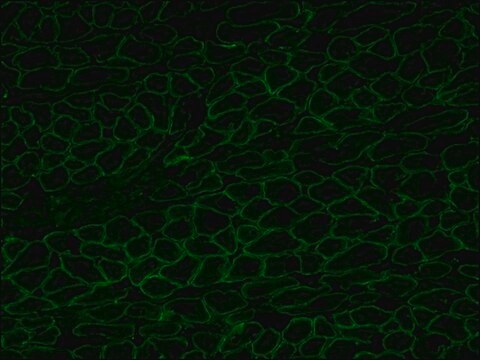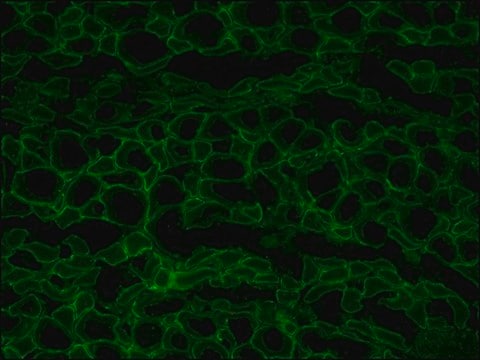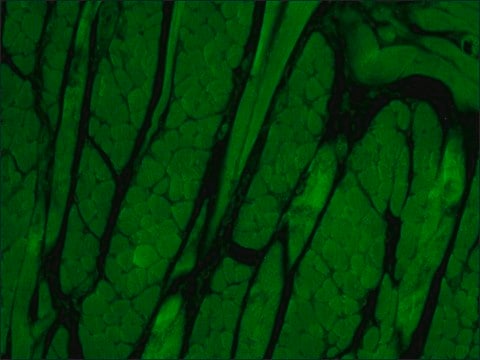D8168
Monoclonal Anti-Dystrophin antibody produced in mouse
clone MANDYS8, ascites fluid
Synonyme(s) :
Dystrophin Antibody, Dystrophin Antibody - Monoclonal Anti-Dystrophin antibody produced in mouse
About This Item
Produits recommandés
Source biologique
mouse
Niveau de qualité
Conjugué
unconjugated
Forme d'anticorps
ascites fluid
Type de produit anticorps
primary antibodies
Clone
MANDYS8, monoclonal
Espèces réactives
chicken, rat, human, pig, rabbit, mouse
Technique(s)
indirect ELISA: suitable
indirect immunofluorescence: 1:400 using frozen human or animal muscle tissue sections.
microarray: suitable
western blot: suitable
Isotype
IgG2b
Numéro d'accès UniProt
Conditions d'expédition
dry ice
Température de stockage
−20°C
Modification post-traductionnelle de la cible
unmodified
Informations sur le gène
human ... DMD(1756)
mouse ... Dmd(13405)
rat ... Dmd(24907)
Description générale
Immunogène
Application
- immunohistochemistry
- immunofluorescence
- double immunofluorescence terminal dUTP nick-end labeling (TUNEL)
- immunoblotting
Actions biochimiques/physiologiques
Description de la cible
Autres remarques
SAB4200764 Anti-Dystrophin antibody, Mouse monoclonal
clone MANDYS8, purified from hybridoma cell culture
Clause de non-responsabilité
Vous ne trouvez pas le bon produit ?
Essayez notre Outil de sélection de produits.
En option
Produit(s) apparenté(s)
Code de la classe de stockage
10 - Combustible liquids
Classe de danger pour l'eau (WGK)
WGK 3
Point d'éclair (°F)
Not applicable
Point d'éclair (°C)
Not applicable
Certificats d'analyse (COA)
Recherchez un Certificats d'analyse (COA) en saisissant le numéro de lot du produit. Les numéros de lot figurent sur l'étiquette du produit après les mots "Lot" ou "Batch".
Déjà en possession de ce produit ?
Retrouvez la documentation relative aux produits que vous avez récemment achetés dans la Bibliothèque de documents.
Les clients ont également consulté
Notre équipe de scientifiques dispose d'une expérience dans tous les secteurs de la recherche, notamment en sciences de la vie, science des matériaux, synthèse chimique, chromatographie, analyse et dans de nombreux autres domaines..
Contacter notre Service technique












